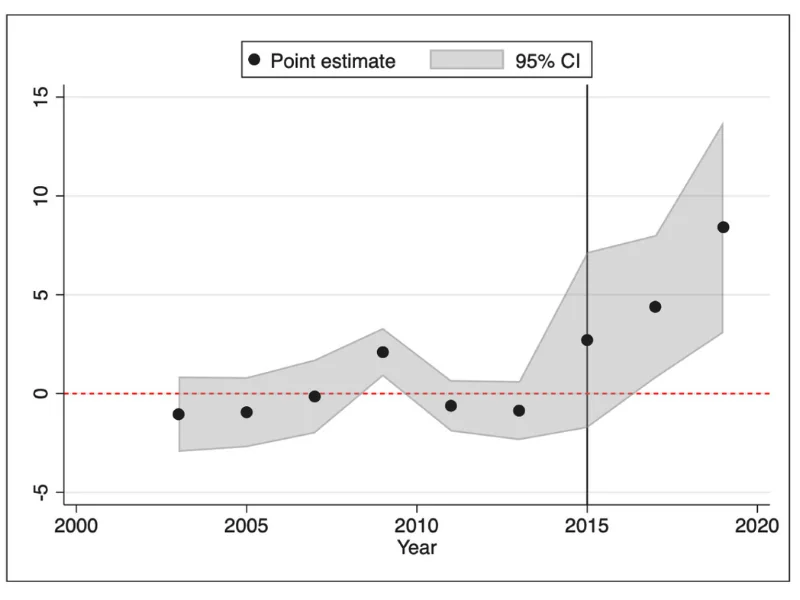Education Policy Boosts Child Development Outcomes
Mississippi is a powerful example of how targeted reading education policies can improve children's literacy and test scores.

Read Time: 2 minutes
Published:
Reading proficiency in early childhood is a critical public health indicator, affecting everything from mental health to future economic well-being. When Mississippi implemented its new reading policy in 2013, the state’s fourth graders ranked 49th in the nation for reading proficiency, highlighting an urgent need for change.
Using statistical analysis comparing Mississippi to other states, Noah Spencer investigated the impact of Mississippi’s 2013 Literacy-Based Promotion Act. This comprehensive policy invested $15 million annually in early literacy through three main strategies. First, teachers received training in phonics-based reading instruction emphasizing core components like phonemic awareness and reading comprehension. Second, the policy implemented regular screening tests to identify and support struggling readers early. Third, students were required to meet reading benchmarks before advancing to fourth grade.
The study found that children who experienced these educational changes from kindergarten through third grade showed dramatic improvements. Mississippi climbed from ranking 49th to 29th in national reading proficiency by 2019. On the National Assessment of Educational Progress (NAEP) standardized test, scores rose, moving many students from below-basic reading levels to basic and proficient levels.

The figure above tracks Mississippi’s improvement in NAEP reading scores compared to similar states. The vertical line marks when the new teaching approaches began in 2013. After implementation, Mississippi’s scores steadily improved beyond expectations, reaching 8.5 points higher than comparable states by 2019 – driving their significant rise in national rankings.
Early literacy is linked to better health outcomes, increased high school graduation rates, and improved socioeconomic status. The study suggests that targeted reading instruction policies, even with modest budgets of $15 million annually, can dramatically improve children’s reading abilities and test scores. Mississippi’s dramatic rise from 49th to 29th place proves that with the right approach, even states facing the greatest educational challenges can create lasting positive change in children’s lives.



